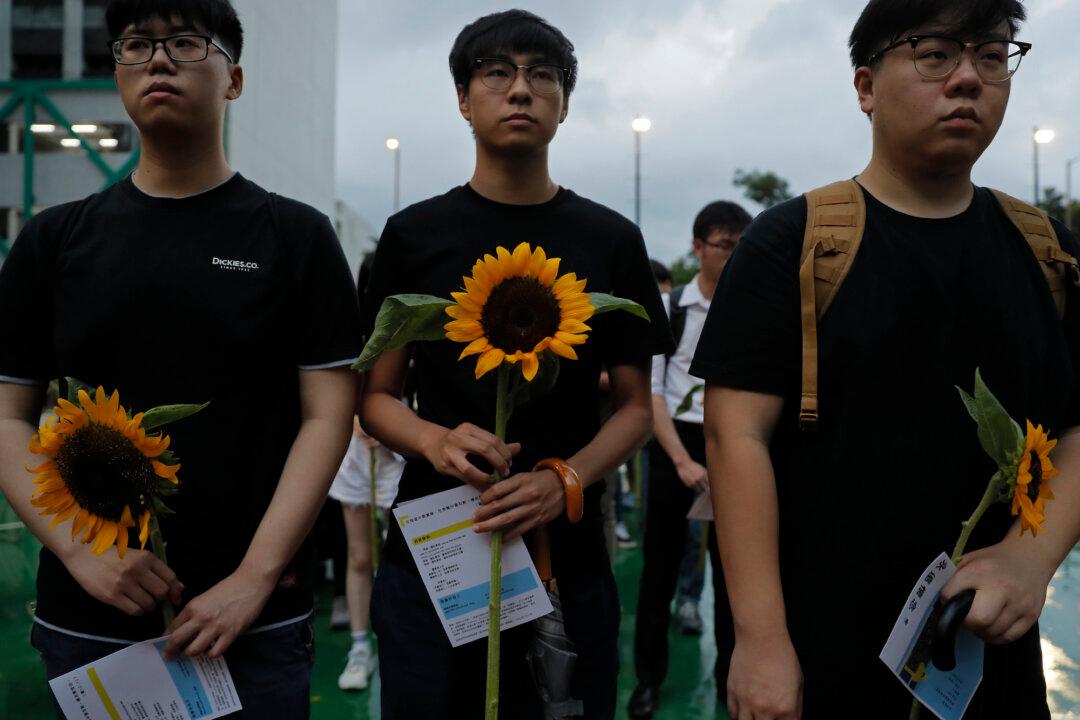HONG KONG—The parents of a Hong Kong man who plunged to his death after putting up banners against divisive extradition legislation urged young people to continue their struggle.
The youth have been at the forefront of huge rallies against the legislation, which has plunged Hong Kong into chaos amid wider fears about the erosion of civil rights in the Chinese territory. Marco Leung’s banners demanded a full withdrawal of the bill, which would have allowed suspects to be sent to mainland China for trial.





